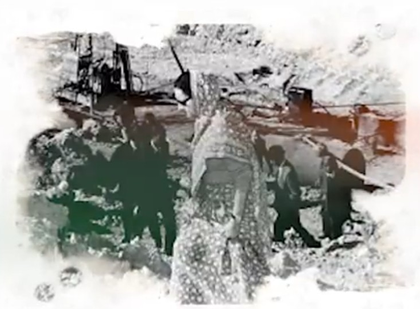Extraordinary feat: Kharge remembers ‘Smiling Buddha' India's first nuclear test
By IANS | Updated: May 18, 2025 10:37 IST2025-05-18T10:31:24+5:302025-05-18T10:37:53+5:30
New Delhi, May 18 Congress President Mallikarjun Kharge on Sunday commemorated the 51st anniversary of India’s first nuclear ...

Extraordinary feat: Kharge remembers ‘Smiling Buddha' India's first nuclear test
New Delhi, May 18 Congress President Mallikarjun Kharge on Sunday commemorated the 51st anniversary of India’s first nuclear test, code-named 'Smiling Buddha', which was conducted on May 18, 1974.
Marking a pivotal moment in India’s scientific and strategic history, the test propelled India into the elite group of nuclear-capable nations, becoming the sixth country in the world to conduct such an operation.
Taking to the social media platform X, Kharge paid tribute to India’s scientific community and hailed former Prime Minister Indira Gandhi’s leadership.
In his post, he wrote: "51 years ago, India conducted its first Nuclear Test, code named ‘Smiling Buddha’ and became the 6th nation in the world to carry out such tests. Our scientists and researchers achieved this extraordinary feat through their ingenuity and dedication. We are deeply grateful to them. Smt. Indira Gandhi demonstrated exemplary and dynamic leadership, displaying remarkable courage even in the face of adversity, a legacy that endures. Jai Hind."
The nuclear test, conducted at the Pokhran Test Range in Rajasthan, marked India’s entry into the global nuclear club.
Officially termed a “Peaceful Nuclear Explosion”, the operation was a carefully planned scientific and strategic milestone that stunned the international community. Despite facing global backlash and the halting of several international nuclear collaborations, India stood firm in its commitment to pursue an independent nuclear programme.
The groundwork for this historic event was laid over the preceding decades. India had strongly opposed the Nuclear Non-Proliferation Treaty (NPT), which came into effect in 1970. New Delhi viewed the treaty as discriminatory, arguing that it denied equal rights to nations outside the established nuclear powers and sought to limit India’s sovereign right to develop its own nuclear technology.
Smiling Buddha was as much a geopolitical statement as it was a scientific accomplishment. It demonstrated India’s capability to harness nuclear energy for peaceful purposes while reinforcing its strategic autonomy. The success of the 1974 test laid the foundation for further advancements in India’s nuclear capabilities, eventually leading to the series of tests conducted in 1998 under Operation Shakti.
The legacy of Pokhran-I endures as a testament to India’s resolve, scientific innovation, and pursuit of self-reliance in defence and technology.
Disclaimer: This post has been auto-published from an agency feed without any modifications to the text and has not been reviewed by an editor
Open in app